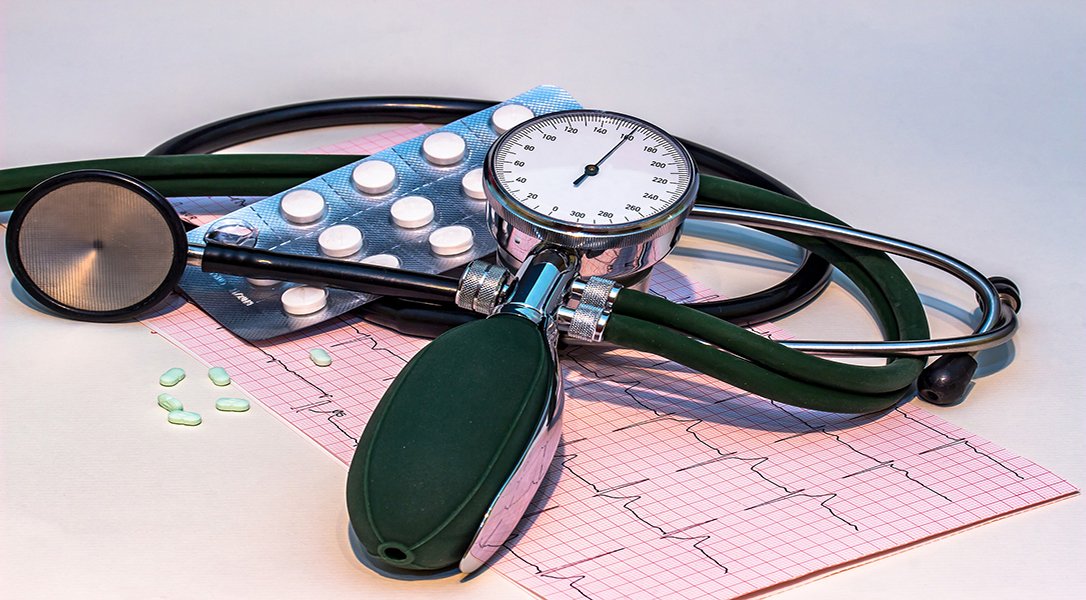High blood pressure affects nearly one billion people around the world. More than one in four adults in the UK have high blood pressure, with many not even knowing it. This guide aims to be a helpful and informative resource about hypertension.
What is hypertension?
Hypertension is a long-term health condition in which the blood pressure in the arteries is constantly elevated.
Blood pressure is recorded using two numbers. The top number is is your systolic blood pressure, which measures the force your heart pumps blood around your body. The bottom number is your diastolic number, which measures the resistance of the blood flow in the blood vessels.
Guidelines provided by the NHS state that:
- high blood pressure is considered to be 140/90mmHg or higher
- ideal blood pressure is considered to be between 90/60mmHg and 120/80mmHg
- low blood pressure is considered to be 90/60mmHg or lower
This should be seen as general guidance. Older people typically have a higher blood pressure so their ‘normal’ blood pressure is different. Consult your GP if you are worried about your blood pressure.
What are the signs of hypertension?
Unfortunately, noticeable symptoms of high blood pressure are rare. Normally, the only time someone will notice symptoms of hypertension will be when the blood pressure reaches dangerously high levels. This is known as a hypertensive crisis. Symptoms include severe headaches and anxiety, chest pain, nosebleeds and irregular heartbeat. These symptoms require emergency treatment.
Causes
The exact cause of hypertension is unknown. Hypertension is more common in older people than younger people and in people of African and South Asian descent due to a number of different health factors. Genetics and family history can also play a role in whether a person will develop high blood pressure or not.
However, there are many different contributing causes of high blood pressure. Lifestyle choices can play a big part in the development of hypertension, including smoking, being overweight, lack of exercise and drinking excessive amounts of alcohol or eating too much salt. People who suffer from stress and conditions such as kidney disease and thyroid disorders are also more likely to have a higher blood pressure.
Treating Hypertension
Your heart has to work much harder as your blood pressure rises. This stronger force of blood can damage your arteries, blood vessels and heart muscle leading to reduced blood flow in the body. This leads to an increased risk of heart attacks and failure, strokes, kidney damage, vascular dementia and eye damage.
However, there are lots of ways to treat and manage blood pressure. Making simple changes to your lifestyle can have a huge effect on your blood pressure.
- Consider your diet
Eating too much salt is often a contributing factor to high blood pressure, so try and avoid adding salt to food and check food packaging for hidden salt content. Try to avoid foods high in saturated fat and sugar and replace them with healthier fruit, vegetables and natural foods. Include more complex carbohydrates (brown rice and whole-wheat bread and pasta), lean meats and legumes in your meals to replace processed foods. - Become a more active person
A sedentary lifestyle is also dangerous for the blood pressure. Slowly add more exercise to your day. Start with a 15 minute walk and up the amount of time outside in small increments. You could end up walking for an hour a day. Then move on to a jog if you can! However, if you have high blood pressure, it is advisable to consult your doctor before starting a new exercise routine. - Cut out cigarettes
The nicotine in cigarette smoke raises your blood pressure and heart rate, narrows and hardens your arteries and makes you more prone to blood clots.
As well as these lifestyle factors, blood pressure can be managed using drugs and medications prescribed by your Doctor. Using drugs combined with the lifestyle changes can really impact your blood pressure and begin to bring it down.
Checking your blood pressure
To find out your blood pressure, you will need to have a blood pressure test. The NHS recommendation is that all adults over 40 get their blood pressure checked at least every five years. This is quick and easy but could potentially save lives. You can get yours checked at your GP surgery. Some pharmacies and workplaces also offer tests.
If you find that you have prehypertension or high blood pressure, you may need to check your blood pressure more regularly. You can do this yourself at home using a manual or automatic blood pressure machine. Your GP will be able to advise the most suitable device for you.
VAT Exemption
If you suffer from hypertension, you qualify for VAT exemption on certain equipment. HMRC state that a product which has been “designed or adapted for a disability” qualifies for VAT exemption.
Our Lifeline pendant alarms are included as a VAT exempt product so if you have hypertension (or another long term health condition) you will not have to pay VAT on your alarm.
Other eligible conditions include arthritis, diabetes, terminal illness and disability. If you are unsure whether you qualify for VAT Exemption then please do not hesitate to give our team a call on 1 800 937543. Alternatively you can send an email to info@lifeconnect24.ie or complete our contact us form.
Always remember to consult a medical professional if you are worried about your health or are planning to make lifestyle changes.
Editor’s Note: This article was updated on 6th October 2021 to reflect current information.





